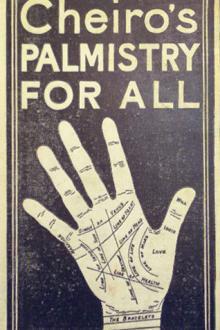The Story of the Mind
The Story of the Mind
In this little book I have endeavoured to maintain the simplicity which is the ideal of this series. It is more difficult, however, to be simple in a topic which, even in its illustrations, demands of the reader more or less facility in the exploration of his own mind. I am persuaded that the attempt to make the matter of psychology more elementary than is here done, would only result in making it untrue and so in defeating its own object.
Book Excerpt
first inscriptions of picture writing, up to the modern inventions in electricity, the complex constitutions of government, and the classic productions of literary art; and as revealing its possibilities finally in the brutal acts of the mob, the crimes of a lynching party, and the deeds of collective righteousness performed by our humane and religious societies.
It would be impossible, of course, within the limits of this little volume, to give even the main results in so many great chapters of this ambitious and growing science. I shall not attempt that; but the rather select from the various departments certain outstanding results and principles. From these as elevations the reader may see the mountains on the horizon, so to speak, which at his leisure, and with better guides, he may explore. The choice of materials from so rich a store has depended also, as the preface states, on the writer's individual judgment, and it is quite probable that no one will find the matters altogether wisely chosen. A
Editor's choice
(view all)Popular books in Psychology, Philosophy
Readers reviews
3.5
LoginSign up
This book was first published in 1898 and is very dated. For example: the author writes about 'natural selection' and then mentions some groups that are not fit to be 'part of the social heritage of our fathers'.
This book will be interesting for anyone who wants to know more about the history of psychology, it gives a fascinating look into past ideas about people, but it is too dated to be useful as a book to learn about current insights in psychology. As a book on the history of psychology I give this book 4 stars, but as a book on psychology only 2 stars because the information is too obsolete.
The contents of this book:
CHAPTER
I. THE SCIENCE OF THE MIND--PSYCHOLOGY
II. WHAT OUR MINDS HAVE IN COMMON--INTROSPECTIVE PSYCHOLOGY
III. THE MIND OF THE ANIMAL--COMPARATIVE PSYCHOLOGY
IV. THE MIND OF THE CHILD--CHILD PSYCHOLOGY
V. THE CONNECTION OF BODY WITH MIND--PHYSIOLOGICAL PSYCHOLOGY--MENTAL
DISEASES
VI. HOW WE EXPERIMENT ON THE MIND--EXPERIMENTAL PSYCHOLOGY
VII. SUGGESTION AND HYPNOTISM
VIII. THE TRAINING OF THE MIND--EDUCATIONAL PSYCHOLOGY
IX. THE INDIVIDUAL MIND AND SOCIETY--SOCIAL PSYCHOLOGY
X. THE GENIUS AND HIS ENVIRONMENT
XI. LITERATURE
Index
This book will be interesting for anyone who wants to know more about the history of psychology, it gives a fascinating look into past ideas about people, but it is too dated to be useful as a book to learn about current insights in psychology. As a book on the history of psychology I give this book 4 stars, but as a book on psychology only 2 stars because the information is too obsolete.
The contents of this book:
CHAPTER
I. THE SCIENCE OF THE MIND--PSYCHOLOGY
II. WHAT OUR MINDS HAVE IN COMMON--INTROSPECTIVE PSYCHOLOGY
III. THE MIND OF THE ANIMAL--COMPARATIVE PSYCHOLOGY
IV. THE MIND OF THE CHILD--CHILD PSYCHOLOGY
V. THE CONNECTION OF BODY WITH MIND--PHYSIOLOGICAL PSYCHOLOGY--MENTAL
DISEASES
VI. HOW WE EXPERIMENT ON THE MIND--EXPERIMENTAL PSYCHOLOGY
VII. SUGGESTION AND HYPNOTISM
VIII. THE TRAINING OF THE MIND--EDUCATIONAL PSYCHOLOGY
IX. THE INDIVIDUAL MIND AND SOCIETY--SOCIAL PSYCHOLOGY
X. THE GENIUS AND HIS ENVIRONMENT
XI. LITERATURE
Index
- Upvote (0)
- Downvote (0)
this was good
05/07/2007
Popular questions
(view all)Books added this week
(view all)
No books found

 Free Download
Free Download





















